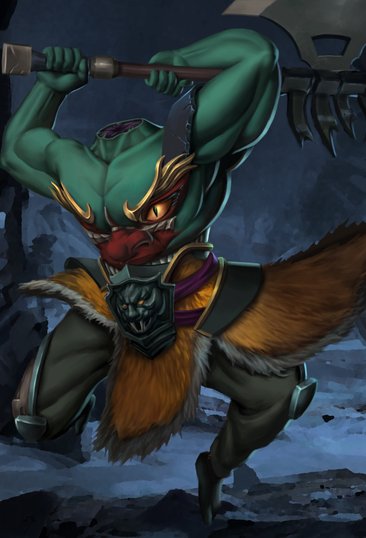A giant, whose original name is unknown, was given the name Xing Tian after he faced the Yellow Emperor (黄帝 huáng dì) in battle and lost. After having his head cut clean off his body by his advisary, the giant refused to die. His nipples turned into eyes, his navel became his mouth, and the new creature - Xing Tian - picked up his weapon and continued to fight the Yellow Emperor.
Decapatation of a Giant
When Emperor Yan (炎帝 yán dì) ruled the earth, his armies were vast, and feared by most. Amongst his subjects there was a large giant that loved music. He composed a piece named Fu Li (扶犁 fú lí) for the Emperor, and wrote a poem called Harvest (丰收 fēng shōu). His work was collectively known as (卜谋 bo móu) and brought much joy and happiness to the people.
When Chi You (蚩尤 chī yóu) rebelled against the Yellow Emperor, the giant begged Emperor Yan to allow him to join the fight but Emperor Yan wouldn't allow it. In the end, after defeating Chi You, the Yellow Emperor turned on his ally and destroyed what was left of his army. Emperor Yan returned from the battle defeated. The giant was furious.
He took up his great axe and large bronze shield, snuck out of the Southern Court of Heaven (南方天廷 nán fāng tiān tíng) and made his way to the Central Court of Heaven (中央天廷 zhōng yāng tiān tíng) to face the Yellow Emperor.

